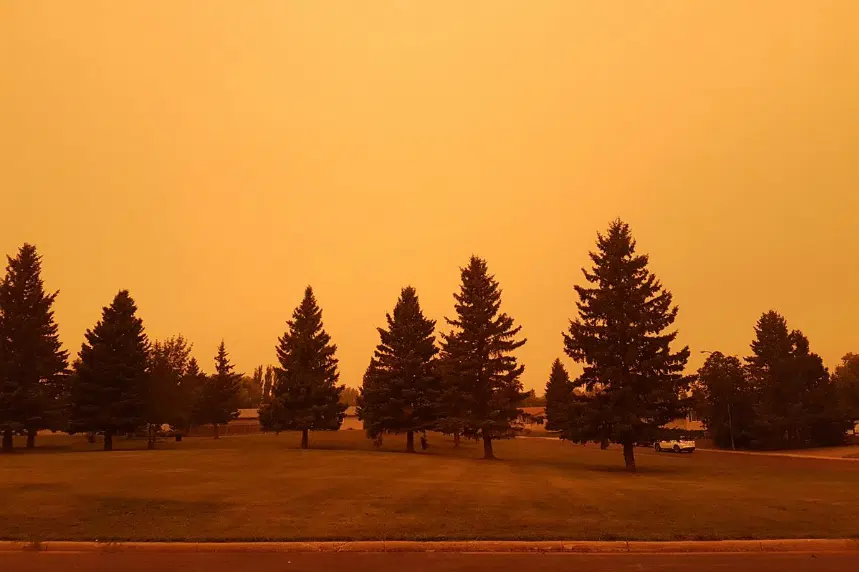Smoke settling over much of the province from wildfires burning in northern Saskatchewan is beginning to take its toll on people suffering from asthma and other lung diseases.
Jaimie Peters, a registered nurse and certified respiratory educator with the Lung Association of Saskatchewan, said aside from staying indoors and keeping necessary medications nearby, there are limited options for people with lung disease.
“It really can affect anyone,” Peters said. “Smoke can get into any little crack, but besides having your asthma well-controlled, we do want to encourage people to stay indoors.”
Peters said many people suffering from asthma or chronic obstructive pulmonary disease (COPD) are aware of forest fire season and are stocked up on controlling medications well before it happens.
To avoid any complications or the typical symptoms like irritated eyes, a runny nose or headaches, Peters encourages people to run their air conditioners on the recirculation setting to keep outside air from getting into the house.
Environment Canada issued a series of special air quality statements across the province Tuesday, but it is calling for improved conditions by Thursday night as a cold front pushes through the province.
As a person suffering from asthma herself, Peters is more worried about how her youngest daughter is coping.
“It’s almost like the start of the pandemic again for some people — hiding in their house and having to manage that way,” she said.
Being on the back end of a global pandemic, Peters always wonders if it’s the smoke or something else causing her daughter’s struggles.
“Her eyes have been so itchy, her nose is all stuffed up and her sinuses are irritated. You start worrying because, ‘Oh dear, maybe it’s COVID,’ ” she said.
“Parents can be in a hard spot because that smoke can be so irritating to those little people.”
Statistics from the Lung Association say almost 3 million Canadians are living with asthma, roughly 9.5 per cent of the total population.
With many of those people increasing controller or reliever medications during forest fire season, Peters hopes the smoke isn’t flaring up any conditions and sending people to emergency rooms.
“Any smoke at all can cause problems,” she said. “Make sure you have your fast-acting rescue or reliever inhaler on you at all times.
“There’s not a whole lot (you can do) except for trying to stay out of it as much as possible.”







